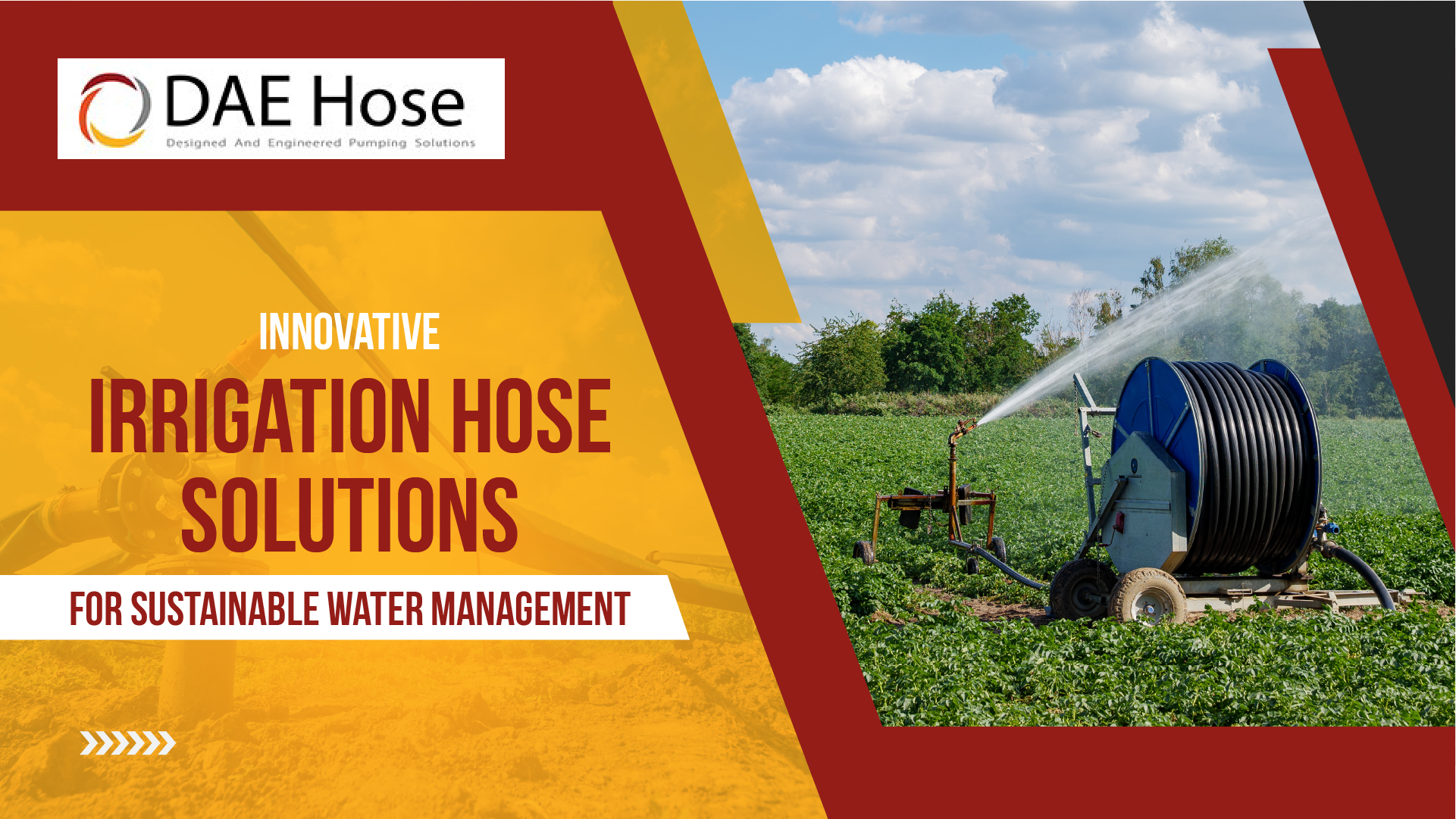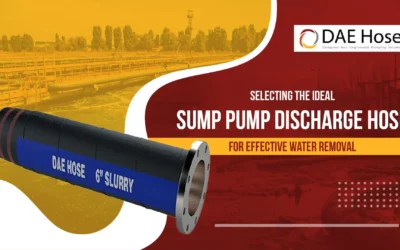As climate change and water scarcity become more pressing issues, sustainable water management in agriculture and landscaping is more important than ever. Traditional irrigation methods often lead to water wastage, soil erosion, and depletion of natural resources, highlighting the need for efficient and eco-friendly alternatives. Fortunately, innovative irrigation hose solutions offer effective ways to conserve water while supporting healthy plant growth. This article explores various irrigation hose technologies that promote sustainable water use, helping individuals and businesses reduce water consumption while maintaining productive landscapes.
1. The Role of Irrigation Hose in Sustainable Water Management

To understand the importance of innovative irrigation hoses, it’s essential to recognize the role of water conservation in sustainability. Irrigation accounts for a significant portion of global freshwater use, especially in agriculture. By adopting water-efficient solutions, we can better manage our resources and reduce the environmental impact of large-scale irrigation. Irrigation hose is a key element in this approach, delivering water directly to plant roots and minimizing evaporation and runoff. Efficient irrigation also prevents soil erosion and nutrient loss, enhancing the health of the environment and supporting long-term crop productivity.
2. Types of Innovative Irrigation Hose Solutions
Innovative irrigation hoses come in various forms, each designed to address specific water conservation needs.
- Drip Irrigation Hoses: These hoses feature small holes or emitters that release water slowly and directly to the base of plants. Drip irrigation is highly effective for water conservation, reducing evaporation and runoff. Ideal for both agricultural fields and residential landscapes, irrigation drip hose deliver moisture precisely where plants need it, helping to maintain soil moisture levels without over-saturating the soil.
- Soaker Hoses: Soaker hoses, made of porous material, allow water to seep through at a steady rate. Placed along the ground near plants, they release water gently and consistently, which helps conserve water and prevent surface runoff. Soaker hoses are particularly useful in garden beds, lawns, and small crop fields where even moisture distribution is essential.
- Smart irrigation drip hose and Systems: Smart irrigation hoses equipped with integrated sensors and Internet of Things (IoT) technology take water management to the next level. These hoses monitor soil moisture, weather conditions, and plant needs, adjusting water output accordingly. By only irrigating when necessary, smart hoses prevent overwatering and reduce water usage, making them a valuable tool for tech-savvy gardeners and commercial landscapes.
3. Materials and Design Innovations in Irrigation Hoses

Sustainable irrigation hoses are not only defined by their water-saving mechanisms but also by the materials and designs used to make them.
- Eco-Friendly Materials: Many modern irrigation hoses are made from recyclable or biodegradable materials, reducing environmental impact. Some hoses are created from recycled rubber or plastic, giving discarded materials a second life while supporting water conservation efforts.
- Durable and Flexible Designs: Advances in hose construction have led to products that are both durable and flexible, reducing the likelihood of leaks and bursts. Enhanced durability helps the hoses last longer, which saves resources by reducing the need for frequent replacements. Using an irrigation hose connector to extend or repair hoses can also enhance flexibility and lifespan.
- UV Resistance and Temperature Durability: Irrigation hoses are now made with UV-resistant materials to withstand prolonged exposure to sunlight. Additionally, temperature-resistant hoses maintain performance in varying climates, ensuring they continue to conserve water effectively even under extreme conditions.
4. Sustainable Practices with Irrigation Hose
Adopting sustainable practices alongside these innovative hose technologies maximizes their effectiveness.
- Using Hoses with Soil Moisture Sensors: Pairing irrigation hose with soil moisture sensors allows for highly efficient watering, as hoses only activate when soil moisture drops below a certain level. This approach reduces unnecessary water use and ensures plants receive moisture only when needed.
- Efficient Watering Schedules: Setting up watering schedules during cooler parts of the day, such as early morning or late evening, reduces water loss from evaporation. With controlled timing and the right tools, like an irrigation hose connector for extending hose reach or directing water flow, hoses can maintain optimal soil moisture levels, helping conserve water even in hot or dry climates.
- Maintenance Tips for Maximizing Hose Lifespan: Regular maintenance of irrigation hose is essential for preventing water loss through leaks or clogs. Inspect hoses for wear and tear, clean out any blockages, and use an irrigation hose connector to replace damaged sections promptly to ensure maximum efficiency.
5. The Economic and Environmental Benefits of Innovative Irrigation Hose
Efficient irrigation hoses offer both economic and environmental benefits, making them a smart choice for anyone interested in sustainable water management.
- Reduced Water Bills for Farms and Homeowners: Water-saving technologies translate directly into cost savings. By delivering water precisely where it’s needed and minimizing waste, these hoses can significantly reduce water bills for both large agricultural operations and small household gardens.
- Long-Term Environmental Benefits: Reducing water usage and preventing runoff benefits local ecosystems by conserving water sources and protecting soil health. Sustainable irrigation practices can also help mitigate the effects of drought and reduce the strain on freshwater resources.
- Increased Crop Yields and Healthier Gardens: Consistent and efficient watering promotes plant health and can lead to increased crop yields. Healthy plants are more resilient to pests and diseases, further reducing the need for additional resources like pesticides and fertilizers.
Conclusion
Innovative irrigation hose play a vital role in sustainable water management, providing a range of benefits from water conservation to improved plant health. These hoses are designed not only to save water but also to reduce costs, protect the environment, and support the growth of plants in diverse settings. By upgrading to efficient irrigation hose systems, individuals and businesses can make a positive impact on the environment and contribute to sustainable water use practices. Explore the available options to find an irrigation solution that fits your needs, whether you’re managing a small garden, a farm, or a commercial landscape. Sustainable irrigation is a simple step with a powerful outcome for the future of water conservation.



